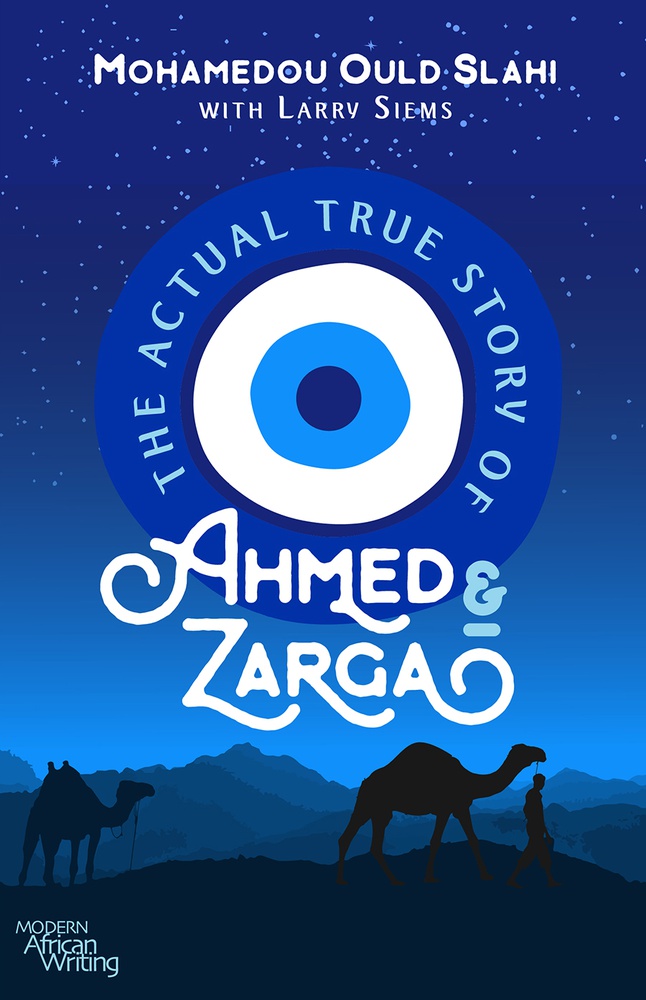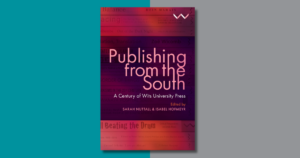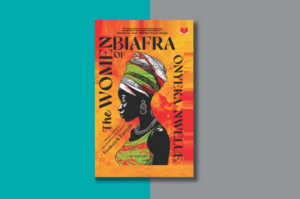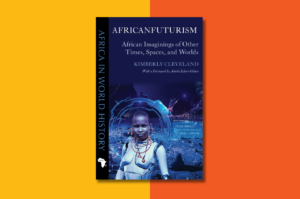
I SWEAR on the belly button of my only sister, my precious sister who hangs from my family by a watermelon’s stem, and on the Sixty Holy Chapters that the following account is as true as you are sitting there.
May I have my days shortened, die of the big C on a Thursday forenoon, pray toward the northwest, be buried with my face toward the west, lose my firstborn male, be dishonored in front of the imam and the king of Marrakesh, lose my sister and my mother on the same day, slip on discarded dirty water on the southwest corner of my tent, get my hair cut on a Wednesday, visit my dead on a Sunday, be hit by the tazabbout of Sheikh Serigne; may I forget the names of the five holy mountains, those mountains that every believer must know, the mountains unperishable until the end of time, the Sinai, Sham, Mecca, Medina, and Jerusalem. God forbid, may all that I would wish to befall my enemy befall me if I’m telling you anything but the actual true story of Ahmed and Zarga.
I know you’ve heard the story. Everybody has. As God has watered our veins in the garden of happiness and dried the veins of all bad people in the place of sorrow and loneliness, so have wise and righteous men through the centuries related to us the story of Ahmed and Zarga. But what I’m about to tell you is the only true version of the story, the real and complete thing, as my sister told it to me. She heard it from our neighbor, old Aunt Aicha. You know Aicha, who knows everything about our old ways, who knows all the stories of the Bedouins and of the great
Calife Harun al-Rashid and how he built his hanging garden at the shore of the sea at the end of the world. People say, and she doesn’t deny, that she is a direct descendant of Shahrazad, the greatest storyteller of all time, who saved her life by telling true stories to her husband for a thousand and one nights. Old Aunt Aicha entrusted to my sister the true story of Ahmed with the bone of her tongue.
And as my sister told it to me, I will tell it exactly that way to you. I am speaking about the dead, those who have already witnessed the truth firsthand, and I do not dare to say anything but the bare truth. The dead could not tell lies, even if they wanted to; that is why everything we see in our dreams, if it comes from the mouth of a dead person, is a hundred percent true. Don’t you see? This is why the beyond is called the house of truth: all you need to experience it is to close your eyes for the last time. And everybody knows the curse that befalls those who tell lies about the departed, because they can hear everything we say about them; how else can you explain their awesome power? Ahmed himself, who herded camels on this earth in the tribe of Idamoor and who lives now in the house of truth, would not look down on me and tell me, “You haven’t spoken the truth, oh living in the house of lies.”
I don’t need to tell you about the tribe of Idamoor, whose ancestors can be traced all the way back to the man who brought the first camels from Sham. The tribe has been herding camels ever since. They know everything about camels: how to feed them and water them, how to medicate them and use them to help medicate themselves, and how to drive and track them. Do you think it is easy to herd camels? But it is said that the Idamoor can drive anything. Ahmed’s grandfather, the story goes, once drove a mixed herd of his camels and the camels of his neighbor. The night was so dark he couldn’t have seen his finger if he held it before his eyes. All night he drove the herd by feel, because the presence of all his camels put his heart and mind at peace.
The problem was the neighbor’s camels, especially a particularly feisty one that kept drifting away from the herd. Ahmed’s grandfather was the strongest and most agile man who ever lived, a man who could eat a whole goat in one sitting, and so he managed each time to get the strange camel back on track. He arrived at camp, exhausted, just before the break of dawn. At sunrise, the people of the freeg were amazed at the wild ostrich that Ahmed’s grandfather had herded and tamed.
For Ahmed, love for the nobility of camels was in his blood. He’d learned the skills of herding from his father, as his father had from his grandfather, and so forth and so on. He lived and breathed herding and couldn’t picture himself away from his herd; it was the reason he existed. It was just like goats and chickens, where the one can’t live without the other. His father never taught him herding; he just lived it and felt it as he accompanied his father, starting as far back as he could remember. Through his father, he first absorbed the names and attitudes of the individual camels. He loved the names, which are the most important things, because without names we cannot communicate or refer to the simplest of things. Like his father, he learned to tame the camels with love rather than violence; he used the thin stick he carried only for balance when he was riding, never as a weapon to abuse the camels. He could milk with one hand as the other hand held the adriss, the blessed wooden bucket he himself had made. He could brand, tail, and track with his eyes closed. He could predict where his herd would go on any particular day, in any weather. Like all true camel herders, he was smart, intuitive, lighthearted, and funny. Most important of all, he had a beautiful voice and sang the most beautiful hidas to guide and calm his camels.
*********
Buy The Actual True Story of Ahmed and Zarga here.









COMMENTS -
Reader Interactions